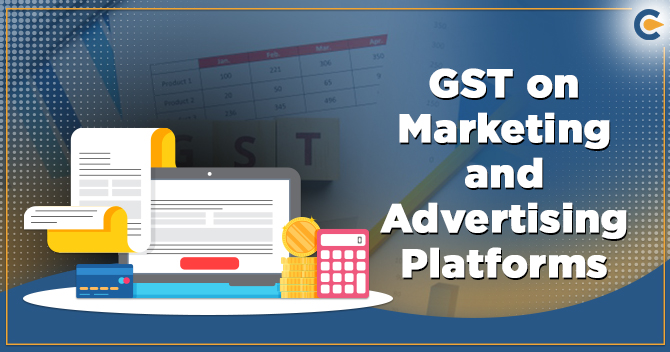The Goods and Services Tax or GST was introduced by the Government of India on 1 July 2017 with the aim to put in place a single consistent tax system which is destination based. GST is the tax which is levied on the goods and services provided for in the Indian economy and it was put in place with the aim of having a uniform tax system in the country. There have been substantial tax reforms in the country like a reduction in paperwork and improved transparency in the process of tax collection. The GST tax system amalgamates central and state taxes into one combined tax. In this blog, we will discuss GST Compliance Checklist.
Businesses are required to adhere to various norms and guidelines laid down by the GST council on how to raise invoices and maintain certain records, the manner of filing returns and paying taxes and ways to report sales and purchases. Businesses which fail to comply with the GST requirements can incur heavy penalties. To avoid such penalties, businesses should be GST compliant and must be aware of the compliance checklist required to be followed to adhere to for the same.
The GST system mandates that businesses must be compliant with the GST rules instituted by the Government of India. The government rates businesses with a GST compliance rating based on the extent of compliance concerning the rules under the system. There are largely three major heads of compliance rules, and they are as follows:
- Compliance pertaining to the registration
- Compliance pertaining to tax invoice
- Compliance pertaining to filing returns
A Brief on GST Compliance Checklist
As mentioned above, businesses must comply with the requirements under the GST rules notified by the government. However, becoming GST compliant requires following many processes, which can often be confusing and taxing without requisite guidelines. Provided below is a GST compliance checklist which can be followed to make one’s business GST compliant:
- Registration-based compliance – GST Compliance Checklist
The registration guidelines pertaining to the GST mandate that businesses are required to get GST registration depending on their annual turnover in the previous fiscal year. Businesses dealing with the supply of goods with an annual turnover of more than Rupees 40 Lakh in the previous fiscal year and businesses dealing with the supply of services with an annual turnover of more than Rupees 20 Lakh are required to mandatorily obtain GST registration.
Mandatory registration is also required by those falling under the below mentioned:
- Casual taxable persons- This includes people who, in their capacity as either principal or agent, partake in transactions for the supply of goods or services in places where such people have no fixed place of business.
- Non-resident taxable person- This includes people who, in their capacity as either principal or agent, partake in transactions for the supply of goods or services where such people have no fixed place of business in India.
- Interstate suppliers
- Suppliers who supply goods through an operator running an e-commerce platform which is required to deduct tax at the source
- Operators running E-commerce platforms through which suppliers supply their products
- People who are required to deduct TDS under GST
- People who are required to deduct TCS under GST
- Input service distributors
- People making sale, either in their capacity as principal or agent, on behalf of another
- Service providers who provide online service to non-registered persons in India from outside India.
Businesses can apply for GST registration by visiting the official GST portal[1]. After enrolment, businesses shall be granted a provisional certificate of registration as provided under Form GST REG-25. Within three months of receipt of the provisional certificate of registration, the applicant must submit Form GST REG-24 along with requisite documents and other necessary information. If the documents and information submitted are found accurate, sufficient, and satisfactory, a final certificate of registration shall be granted under Form GST REG-26.
Once GST registration is approved, Goods and Services Tax Identification Number (GSTIN) is generated, which is a 15-digit unique identification number for business entities for tax purposes.
- Tax invoice compliances (GST Compliance Checklist)
Once a business has been registered under GST, it needs to mandatorily follow certain invoice compliances to pass on the input tax credit. Businesses offering goods or services must generate invoices and such invoices must adhere to certain rules of compliance and must include specific information as provided below:
- Invoice date and invoice number
- Shipping address and billing address
- Name of the customer
- Place of supply
- Customer’s GSTIN
- Taxpayer’s GSTIN
- Harmonized System of Nomenclature or HSN code or Services Accounting Code or SAC, as applicable.
- Taxable discounts and values
- Details of item like, inter alia, description, value, unit, quantity
- Amount and rate of taxes
- Whether GST is payable on a reverse charge basis or not
- Supplier’s signature
- HSN Code Requirements
The Harmonized System of Nomenclature or HSN was developed by the World Customs Organization for the systemic classification of global commodities. HSN code is used to determine the tax rate in a jurisdiction, and the number of products exported and imported and helps in assessing the movement of products globally. The Government of India has mandated that businesses have to mandatorily mention a 4-digit or 6-digit HSN code in GSTR-1’s Table 12 and tax invoices. Businesses with a turnover of up to Rupees 5 Crore in the previous fiscal year are required to report 4-digit HSN code in their GSTR-1 and businesses with a turnover of more than Rupees 5 Crore are required to report a 6 digit HSN code in their GSTRN-1. Businesses engaging in import and export are required to mention an 8-digit HSN code.
- E-Invoice Requirements
According to the GST notification released on 24 February 2022, entities with an annual turnover of more than Rupees 20 Crore in aggregate in financial years from 2017-2018 onwards are required to generate e-invoices and this mandate also applies to the vendors of such entities and if such vendors do not follow the requisite mandate, the input tax credit of such entity shall get affected. Earlier, the threshold for e-invoicing was Rupees 50 Crore or more of annual turnover, which was applicable from April 2021. Prior to that, the threshold was Rupees 100 Crore or more of annual turnover, which was to be applicable from January 2021. Without e-invoicing, the purchaser shall not be able to claim the income tax credit.
Businesses with an annual turnover of Rupees 500 Crore are required to affix QR codes on B2C supply invoices.
When filing GSTR 1, a unique series of invoices must be raised, and the GST portal must not have repetitive invoices on it in the same fiscal year.
Non-compliance with invoice requirements can lead to penalties of up to Rupees 10000/- or 100% of tax which is due to be paid for non-issuance of an invoice, whichever among the two is the larger sum and for erroneous invoice generation, the penalty shall be up to Rupees 25000.
- GST Return Compliance (GST Compliance Checklist)
All businesses registered under the GST system are required to file monthly or quarterly or annual returns based on the kind of activity of the business. GST returns are required to be filed online on the official GST portal under the ‘returns’ section. The following forms are required to be filled out while filing returns:
- GSTR-1: it is a return where details of the sale are reported to the government. One need not pay any tax after filing this return.
- GSTR-3B: it is a self-declaratory monthly return required to be filed by all taxpayers registered under GST to disclose GST liabilities by delineating outward supplies made, tax liability determined, and taxes paid, input tax credit claimed.
- GSTR-9: this return is filed by entities with an annual turnover of more than Rupees 2 Crore in a fiscal year and must be filed annually. It contains information pertaining to inward supplies which have been received and outward sale supplies which have been made in the last year and details of tax which is payable and tax which is paid. GSTR-9 is an amalgamation of various quarterly or monthly returns filed in a particular year, like GSTR-3B, GSTR-2A and GSTR-1.
- GST on Reverse Charge
GST is paid to the suppliers of goods and services by collecting it from the recipient of such goods and services and paying the consolidated tax to the government. However, in some cases, the recipient is the one who is required to pay the GST. This is called Reverse Charge on GST and it is imperative to pay such reverse charge to claim input tax credit from the government.
- Apply Letter of Undertaking for Exports
Registered persons supplying goods and services for export purposes without furnishing payment of IGST are required to submit a letter of undertaking under Form GST RFD-11 as per Rule 96-A of CGST Rules, 2017.
- Quarterly Return Monthly Payment
Quarterly Return Monthly Payment was introduced by the Government of India with a view to simplifying compliances to be followed by taxpayers. Under the QMRP scheme, businesses with an annual turnover of up to Rupees 5 Crore are qualified to file GST returns quarterly with monthly payments. Businesses can choose to opt-in or opt-out of the QMRP scheme.
Conclusion
Businesses dealing with the supply of goods and services are required to be aware of the compliances to be followed under the GST system, and it is imperative that such businesses comply with GST norms and guidelines to avoid tax penalties, fines and other losses.
Read Our Article: GST Registration Documents: A Complete Checklist











